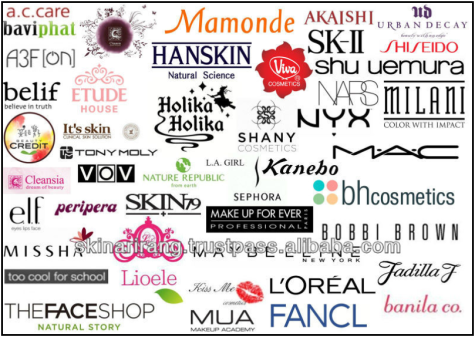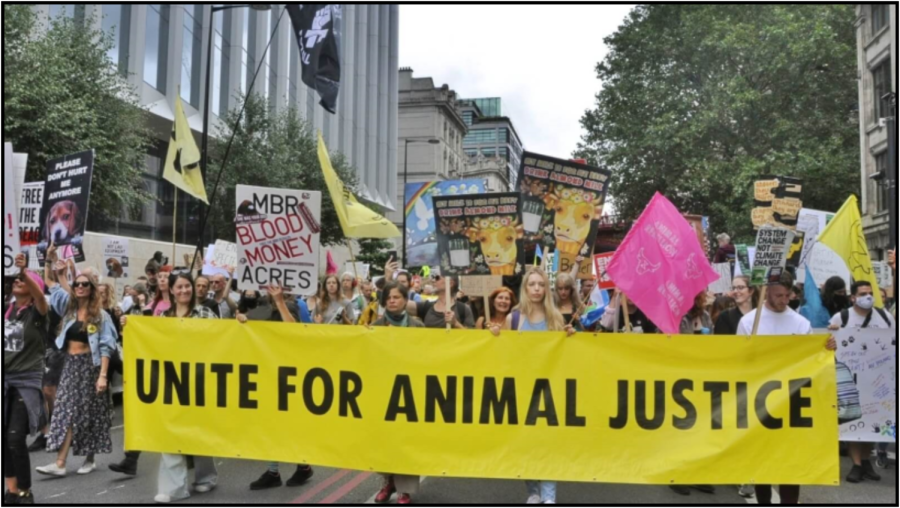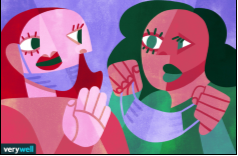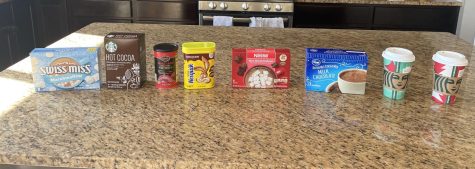Today’s most loved brands overshadow a pattern of hidden violence
A group of people coming together to protest for animal rights. (Photo courtesy of Plant Based News).
May 27, 2023
L’Oréal, Clorox, Covergirl, Clinique, Johnson-Johnson, Colgate.
These are merely a fraction of companies that, despite the several protests, continue to test their products on animals. Thankfully, the number of companies participating in this abomination has experienced a downward trend.
The morality of animal testing has been a topic of debate since the early twentieth century. In 1966, the Animal Welfare Act was passed and began to regulate and allows the activities of forced animal testing. Since then, the majority of citizens around the world have protested this issue in front of some of the main companies that refuse to install a change, such as Revlon and Avon. More than 50 years later, this law is out of date and is long overdue for a change due to the fact that forcing animals to be tested on is inhumane.

Companies have argued that the main reason for animal testing is that they need to test on a subject to make sure that the products are safe for human use without testing on humans themselves.
However, by testing on animals, companies are often torturing and killing innocent creatures against their will.
Companies like Clorox and Clinique could follow cruelty free companies and use other ways to ensure the safety of their products, such as voluntary human testing, or simply using ingredients that are known to be safe for use in humans.
By testing on animals, companies believe that the product is automatically safe for human use. However, PETA, a non-profit organization that mainly focuses on supporting and protecting animal rights, says that 95% of pharmaceutical drugs that were tested safe and effective on animals failed in human clinical trials. This is a strong statistic proving that even if the product is tested

safe on animals that does not prove it safe for human use.
Senior Gigi Gondoly is a long-time supporter of animal rights and comments, “There are so many scientific alternatives to animal testing now, so it’s illogical to continue to use animals for research. Of course, human health should be prioritized, but it’s no longer necessary to cost animals their lives for our hygienic or medical products.”
So, the next time you run out to the store, watch out for products like bath and body works and tarte that may show signs of non- cruelty free testing. However, most of the products that currently do not test on animals proudly showcase it by label on the front of the products Yet, be cautious of the brands you buy from and hopefully in the future we will see a world in which animals are not only free from harm, but also respected and cherished.







